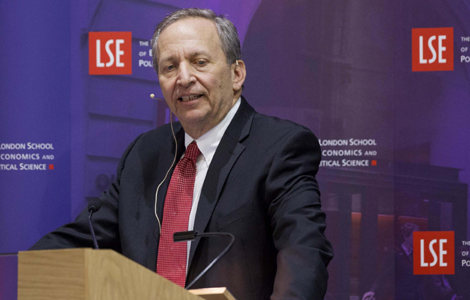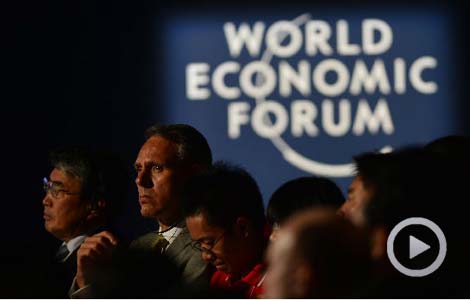China's commitment to growth will drive global economy
Updated: 2013-09-17 09:03
By Gordon Brown (Agencies)
|
||||||||
Of course, China no longer can rely on "one-off" advantages such as the move from an agricultural to an industrial economy, comparatively low-cost labor, and the boost from membership in the WTO. With its urban population expected to expand by 300 million, and aspirations rising among the Chinese people, China knows it will have to move quickly to exploit the "Third Industrial Revolution" from 3D printing and digital design to nanotechnology, biotechnology and genetics, hence its one million research and development workers and its plans for 100 million more graduates. The new growth agenda will need that talent, but it will also need an obsessive focus on innovation, enterprise and social reform - the topics under discussion at the World Economic Forum. The requirements are:
* Liberalization of interest rates and the prices of producer goods and utilities;
* A fairer competitive environment for private enterprises;
* The opening up of the land ownership and household registration systems;
* Local government fiscal reforms and the end of an overreliance on highly volatile land sales through the creation of a solid local tax base; (Debts owed by all levels of administrations, government financing vehicles and other public entities are estimated at twice the annual gross domestic product.)
* The gradual internationalization of the yuan, most recently with free convertibility with the Australia dollar and the UK currency swap agreement;
But perhaps the most important barriers to long-term success are the disparities in wealth, now being addressed under the premier's desire to "promote social equity." This is a prompting for tax reform and plans for better health and welfare benefits. A phrase unfamiliar to the West, but now increasingly the subject of official pronouncements, is "the mass line" - a campaign that encourages Communist Party leaders to prioritize the needs of the people.
But like other emerging (in China's case, re-emerging) market economies in an increasingly interdependent world, China's success depends not just on a new reforming government, but on a continuously expanding world economy. China's historic decision to join the G20 was not just a recognition of the country's new status in the world, but the start of a new era of Chinese world leadership. Chinese leaders are too shrewd to believe post-2008 stories about the decoupling of the West and the rest. But, with the West looking inwards, recent G20 meetings, including last week's in Russia, have done little to halt the slowdown in world growth from a potential 5 percent to 3 percent. Without concerted global action, Japan is expected to grow by only 1.8 percent annually until 2025, with Europe doing little better. Even the now faster-growing America may record little more than 2 percent average growth during that time period.
The global way forward is through cooperation comparable to the creation of the liberal trading orders in the years after World War Two. The West - once the world's biggest producer and consumer - could stimulate world growth. In the mid-2020s Asia - already the world's biggest producer and soon to be the world's biggest consumer - will be strong enough to drive the world economy forward. But today we are at a transition point. The majority of production is now outside of the West. But with the majority of consumption still in the West, neither the West nor the emerging markets can prosper in isolation from each other. China and America should return to the idea pioneered by the G20 of 2009: a global growth compact under which China agrees to boost growth, increasing its consumer imports in return for America and Europe boosting growth through expanding investment and infrastructure. The IMF calculated that strategy would increase growth by 3 percent over 3-4 years and create up to 50 million jobs. Today inflation is low, there is surplus of savings and if, as one study suggests, the United States could increase its share of China's imports from its current 7 percent to 10 percent, that increase alone would over time boost US exports by an additional $100 billion, and support almost 500,000 new jobs, a win-win for both countries.
Instead of struggling through the fallout from yet another failed G20, heightened cooperation would raise growth, increase employment, raise living standards all round and address poverty - the rocket the post-crisis world now needs.
(Gordon Brown was Prime Minister of the United Kingdom from 2007 to 2010. He is currently the UN Special Envoy for Global Education. His opinions are his own.)

 Thirteen dead in US Navy Yard shooting
Thirteen dead in US Navy Yard shooting
 Exporters to face more trade friction
Exporters to face more trade friction
 Toddler-death defendant says he meant no harm
Toddler-death defendant says he meant no harm
 Watchdog bites with no favor
Watchdog bites with no favor
 Miss New York crowned 2014 Miss America
Miss New York crowned 2014 Miss America
 Summers withdraws from Fed chair contest
Summers withdraws from Fed chair contest
 Scientists make land arable again
Scientists make land arable again
 Stranded cruise guests flown home
Stranded cruise guests flown home
Most Viewed
Editor's Picks

|

|

|

|

|

|
Today's Top News
Exporters to face more trade friction
Thirteen dead in US Navy Yard shooting
Minimum growth rate set at 7 percent
China urges the Philippines to stop provocations
College asks freshmen to sign suicide disclaimer
Xi seeks to resume FTA talks
UN confirms nerve gas used in Syria
Tibet gears up for new climbing season
US Weekly

|

|







